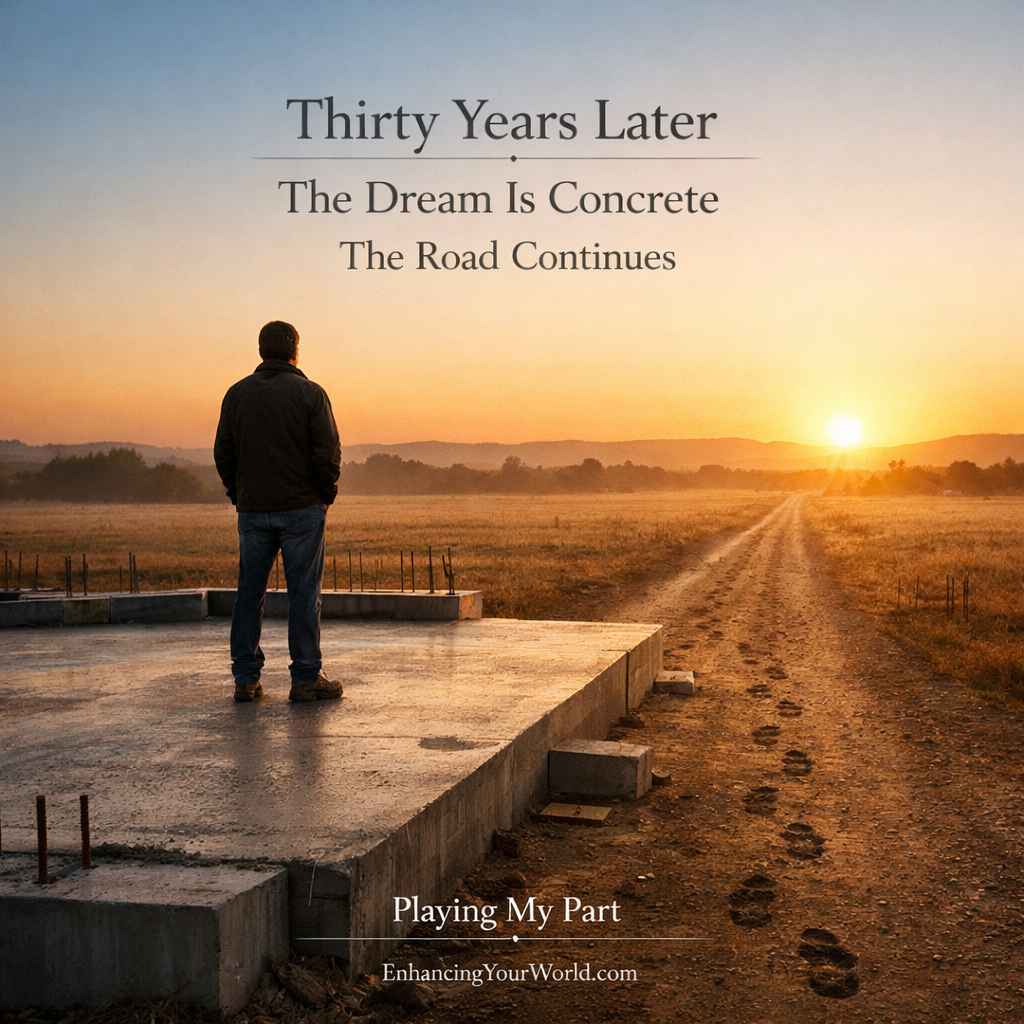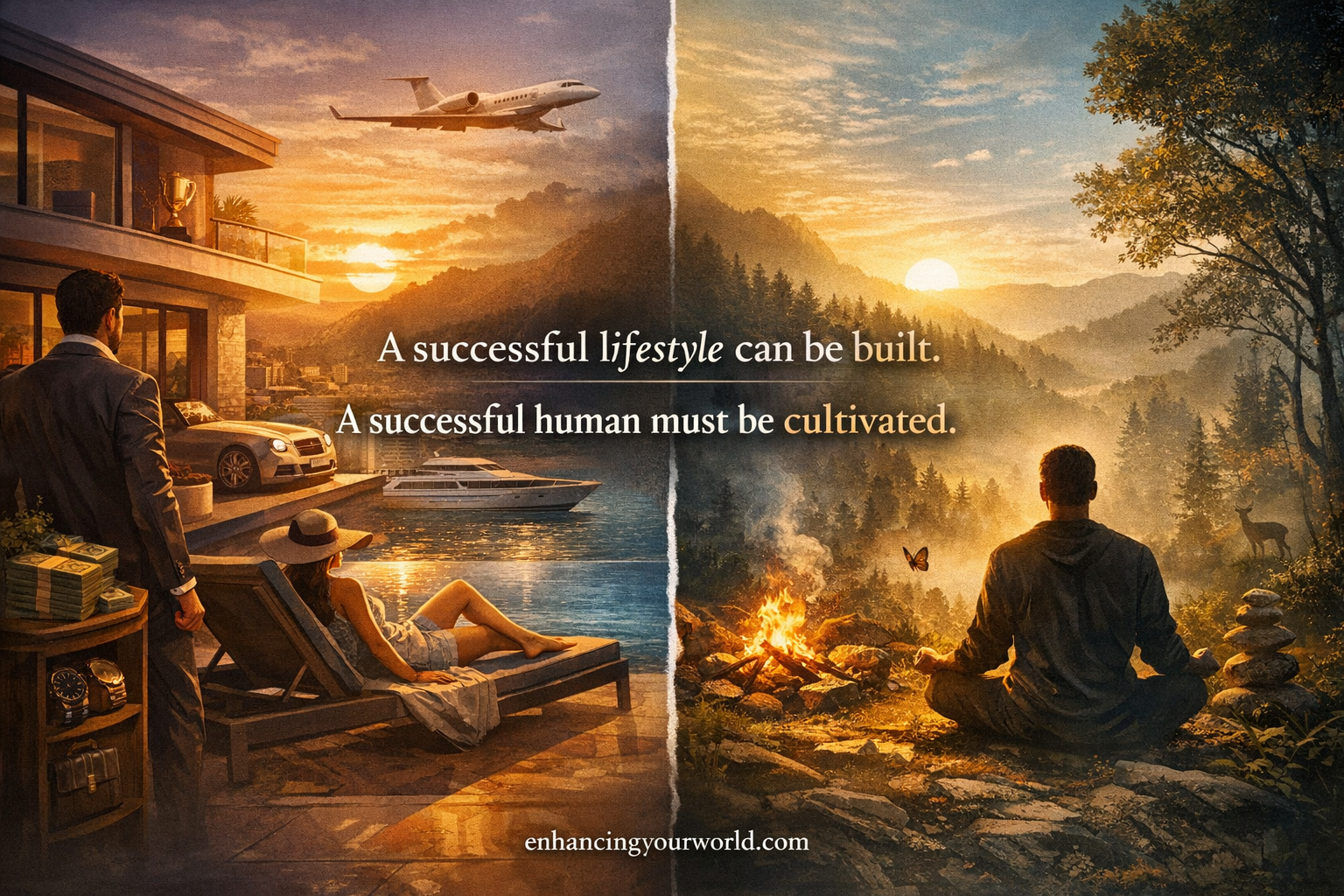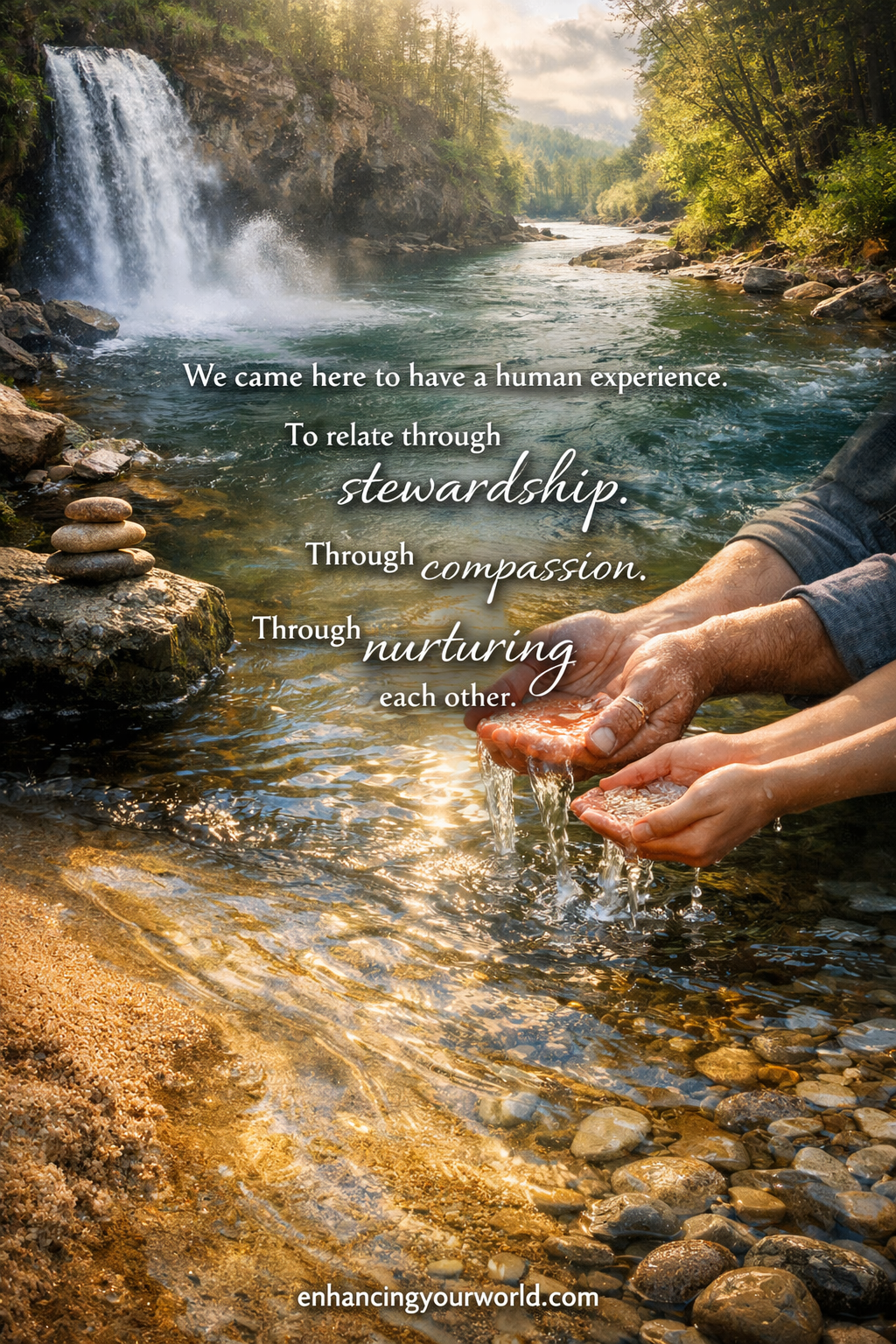The Personal Challenge of Being Visionary and Heart-Led Dreams become concrete. The road continues. And…

Sanctifying the Ego: Embodying the Higher Self Through Presence
Sanctifying the Ego: Embodying the Higher Self Through Presence
By Chris “Yellow Owl” Albaugh
The Ego and the Divine: Bridging Belief and Being
It’s a strange thought, isn’t it? We’ve been taught to battle, ignore, or simply let our ego run wild. But what if none of these approaches are the answer? What if the ego, like every other part of our human makeup, was never meant to be a problem? What if its true purpose is to be made sacred through conscious awareness – made holy not by striving for perfection, but by simply being present?
Many seekers ask: Does embracing the ego mean doing the opposite of what we feel, think, or believe we should do? The ego is cunning. Even resisting it can be another one of its disguises – another identity built on the idea that we’re somehow not enough as we are.
So, the real question isn’t about what we should do, but rather, who is doing the choosing?
Beyond the Traps of “Should” and “Should Not”
The ego is shaped by our past – our victories and wounds, the stories we carry from childhood, culture, and life experiences. It creates an identity, a shield to protect us from pain and help us navigate the familiar.
But as we awaken, these very identities can become our prisons. We find ourselves caught in the duality of:
- Having and having not
- Being and yet to be
- Success and failure
- Acceptance and rejection
This is the mind’s dualistic nature at play, attempting to solve the profound mysteries of the soul through a tangled maze of logic, time, and endless comparison.
Here’s the paradox: even the act of trying to “kill the ego” is an egoic act – a performance of righteousness. So, we’re not here to destroy it. We’re here to refine it with love, integrate it with our soul, and guide it back to presence.
The Power (and Pitfalls) of “Would, Should, Could”
We often use these words:
- “I would have, but…”
- “I should have known…”
- “I could have done better…”
These phrases can be bridges to understanding – or they can become barriers. They can open doors to possibility, or they can distance us from the raw truth of the present moment.
They can be valuable tools for learning, reflection, and adjusting our course. Or, they can become escape routes from accountability, vulnerability, and true embodiment.
The crucial difference lies in whether we’re using them to live more fully in the now, or to avoid the truth that’s emerging in this very moment.
Sometimes, unexpected events – a loss, a breakup, a truth we weren’t ready to face – crack open the rigid mental structures around our identity. In that rupture, we’re forced to grow in ways we didn’t choose, but deeply needed.
In such moments, the ego is no longer in charge. It becomes the student. It’s no longer the narrator, but the listener. And if it’s open enough, what it hears is the undeniable call to evolve.
When the Ego Serves the Soul
The true enhancement of the ego happens when it shifts from being a master to a servant:
- The voice that once demanded “prove it” now gently encourages “express it.”
- The deep need to be seen transforms into the profound gift of seeing others.
- The desire to win evolves into a calling to serve.
This profound shift emerges only through deep observation – noticing not just what we do, but why. Are we acting out of fear, avoidance, a need for validation, or from a genuine, embodied sense of being?
Sometimes, doing the opposite of what we think we “should” do is indeed the way forward. Other times, it’s doing the very thing we’ve always avoided because it makes us uncomfortable. The distinction isn’t in the action itself, but in the frequency or intention behind it.
How Do You Tell Your Story? The Whole Story
Do you share your story only through your achievements, your accolades, and the undeniable brilliance of your journey?
Or do you also include the parts that felt incomplete – the moments where your identity faltered, where dreams dissolved, where you had to “die” to who you thought you were in order to remember what truly cannot be forgotten?
The ego yearns to be the hero of the story.
Consciousness yearns to be the truth of the story.
So, what happens when we share not just the highlight reel, but also the shadows?
- Not just the dream realized, but the one deferred.
- Not just the moment we knew who we were, but the moments we had no idea and kept moving forward anyway.
- Not just the healing, but the addiction that, surprisingly, taught us how to breathe again.
- Not just the wisdom, but the wound that propelled us to seek it.
To tell your whole story is to give others permission to do the same. It makes the ego holy not through shame or self-importance, but through inclusion. It unites the human and the divine. The loss and the becoming. The breath we held and the exhale we finally allowed.
The Illusion of Arrival: Beyond “Special” Humanity
If the paths of the past – religion, politics, consumerism, ideology, and even many spiritual teachings – were truly enough to create the happy, healthy, harmonious existence they promised, wouldn’t it already be here?
If we’ve had access to profound teachings of love, unity, and truth for thousands of years, what still keeps us separated?
What hasn’t yet been fully integrated – not just in theory or ritual, but in our daily practice?
What’s missing from our storytelling, from our honest self-reflection, from our genuine relationships with one another?
Could it be that we’ve become so fixated on being a “special” kind of human, that we’ve simply forgotten how to simply be human?
- To cry and still be holy.
- To fail and still be worthy.
- To be messy and still be magnificent.
We’ve mistakenly confused transcendence with avoidance. We’ve turned performance into presence. But true presence is raw, undressed, unfiltered – and profoundly aware.
The Gaps Between Belief and Embodiment: Living Your Truth
This is where the rubber meets the road. It’s one thing to believe in principles, another to embody them.
Consider the profound teachings within Christianity, for example. How can one sincerely believe in “love thy neighbor as yourself,” yet harbor hatred in their mind and heart towards others? Or how can the commandment “thou shall not kill” be preached, only to then justify war, often in the name of a so-called god?
This isn’t an indictment of faith itself, but a look at the profound disconnect that arises when the ego, unexamined, takes these sacred teachings and twists them to fit its own narrative of separation and fear.
A “Creator” that would command love and then demand violence seems to defy its own nature. This isn’t about a flawed Creator, but rather, the human tendency to filter divine principles through the distorted lens of an unintegrated ego.
What does this look like in daily life?
- The “Spiritual” Person Who Judges Others: They may speak of unity and light, but their private thoughts are filled with criticism and judgment toward those who don’t follow their path.
- The Advocate for Peace Who Is Filled With Inner Conflict: They champion external peace movements but struggle with anxiety, inner battles, and a lack of self-acceptance.
- The Philanthropist Seeking Recognition: Their acts of charity are commendable, but driven by a deep need for applause and validation rather than pure selfless giving.
- The Health Enthusiast Obsessed with Perfection: They adhere to strict diets and routines, yet are motivated by fear rather than joy or self-love.
These gaps reveal where our ego is still trying to “run the show.” The challenge is not to discard our beliefs, but to allow them to permeate every level of our being – from thought to action, from private intention to public expression.
Call to Action: Walk as Your Whole Story
Ask yourself gently:
- Where have I been telling only a partial story about myself?
- Where am I still trying to prove something instead of simply express who I am?
- What parts of me need to be included, rather than endlessly improved?
- Where am I using “would,” “should,” or “could” as a way to avoid the moment I’m truly in?
- Where do my stated beliefs not align with my actual thoughts, feelings, or actions?
Let your ego become a vessel – not for separation, but for wholeness.
You don’t have to be perfectly healed to be whole.
You don’t have to be completely certain to be wise.
You don’t have to be “better” to belong.
You just have to be here, now, awake to what’s real – not for applause or external approval, but because this is precisely what humanity is asking of us:
To walk forward as our whole selves – broken, beautiful, unfinished, and wonderfully free to be ourselves in relation to life itself, authentically.
How will you begin to embody your whole story today?
What one small step can you take to align your inner truth with your outer actions?



